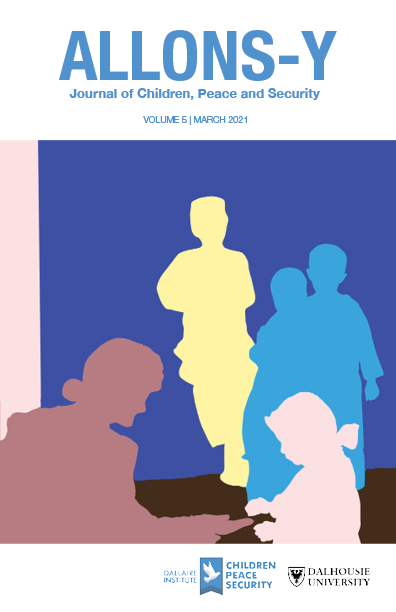Más allá de la dualidad de sexos: ¿Por qué el género juega un rol importante en el reclutamiento y el uso de menores?
DOI:
https://doi.org/10.15273/allons-y.v5i0.10214Palabras clave:
niños soldados, niños y conflicto armado (CAAC), género, no binario, orientación sexual, identidad y expresión de género, y caracteràsticas sexuales (OSIEGCS), Principios de VancouverResumen
El género juega un rol en situaciones de conflicto. Las normas, actitudes y expectativas socioculturales asociadas al género inciden en las causas, el desarrollo y las consecuencias del reclutamiento de niños soldados. A pesar de los compromisos internacionales, el reclutamiento y el uso de niños soldados en fuerzas y grupos armados es una practica atroz que persiste. Este documento resume información cuantitativa del Mecanismo de Supervisión y Presentación de Informes de las Naciones Unidas, en el contexto de un análisis cualitativo complementario de otras fuentes, con el propósito de resaltar las maneras en que las normas de género pueden: (a) fomentar el reclutamiento, (b) determinar los roles y responsabilidades y (c) influir en los resultados para los niños en relación con fuerzas o grupos armados. Aquà se analizan las necesidades y vivencias de los niños y, cuando la evidencia lo avala, las de niños de orientación sexual, identidad y expresión de género y caracteràsticas sexuales (OSIEGCS) diversas. Asimismo, ofrezco recomendaciones sobre posibles medidas que pueden fomentar la matización de la perspectiva de género propuesta en los Principios de Vancouver. También ofrezco sugerencias para garantizar que las intervenciones de prevención y respuesta (1) estén respaldadas por información desglosada coherente, (2) sean conscientes de los impulsores de género tras el reclutamiento y (3) se adapten a las distintas necesidades de niños de OSIEGCS diversas.Descargas
Publicado
2021-03-31
Número
Sección
Commentaries





